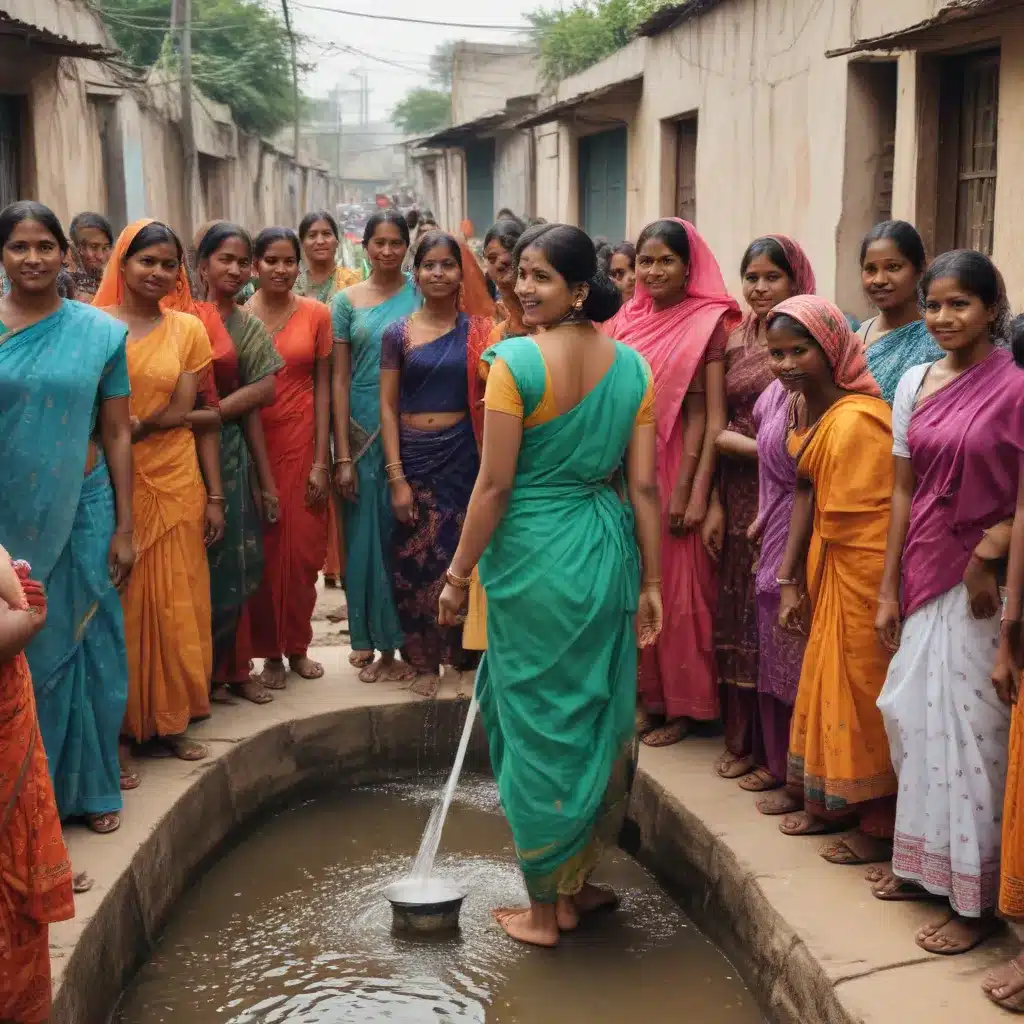
Empowering Slum Residents through WASH Education, Advocacy, and Community-Led Monitoring in Hyderabad
Addressing the WASH Challenges in Urban Slums
The bustling city of Hyderabad, known for its rich cultural heritage and technological advancements, is also home to a significant population living in urban slums. These marginalized communities face persistent challenges in accessing safe and reliable water, sanitation, and hygiene (WASH) services – essential elements for maintaining health, dignity, and overall well-being.
In Hyderabad’s sprawling slums, the lack of adequate WASH infrastructure has perpetuated a vicious cycle of disease, poor health outcomes, and limited economic opportunities. Residents often rely on shared, poorly maintained facilities or resort to open defecation, exposing themselves and their children to the risk of waterborne illnesses, such as diarrhea, cholera, and typhoid.
Recognizing the urgent need to address these WASH disparities, a collaborative initiative led by Joint Action for Water has been empowering slum residents in Hyderabad through a multifaceted approach that combines WASH education, community-led advocacy, and innovative monitoring strategies.
Empowering Through WASH Education
At the heart of this initiative lies a comprehensive WASH education program tailored to the specific needs and cultural contexts of Hyderabad’s slum communities. Trained community health workers have been deployed to conduct door-to-door outreach, engaging residents in interactive sessions that cover essential topics such as:
- Hygiene Practices: Emphasizing the importance of handwashing, safe water storage, and proper sanitation habits to prevent the spread of diseases.
- Water Quality Monitoring: Educating residents on simple water testing methods and the significance of maintaining safe drinking water standards.
- Sanitation Facilities: Informing communities about the benefits of using and maintaining improved toilet facilities, while addressing stigma and cultural barriers.
- Environmental Sustainability: Raising awareness about the impact of improper waste disposal and the importance of sustainable waste management practices.
By empowering residents with knowledge and practical skills, the WASH education program has fostered a sense of ownership and responsibility within the communities, catalyzing positive behavioral changes and strengthening their capacity to advocate for their rights.
Community-Led Advocacy for WASH Improvements
Alongside the WASH education initiatives, the project has empowered slum residents to become active advocates for their WASH rights. Through a process of community mobilization and capacity building, residents have formed self-help groups and community-based organizations (CBOs) to collectively voice their concerns and demands to local authorities.
These grassroots advocacy efforts have led to tangible improvements in WASH services, such as:
- Strengthening Partnerships with Local Authorities: Slum residents have engaged in constructive dialogues with municipal officials, leveraging their collective voice to identify and address WASH infrastructure gaps, secure funding for upgrades, and ensure equitable service delivery.
- Implementing Community-Led Monitoring: Residents have been trained to conduct regular monitoring of water quality, sanitation facilities, and waste management practices, empowering them to identify and report issues to the relevant authorities.
- Fostering Collaborative Solutions: Community-led initiatives have brought together diverse stakeholders, including local government, private service providers, and civil society organizations, to co-create innovative WASH solutions tailored to the unique needs of each slum community.
By positioning slum residents as active participants in the WASH decision-making process, this approach has fostered a sense of shared responsibility and collaboration, ultimately leading to more sustainable and equitable WASH outcomes.
Leveraging Technology for Community-Led Monitoring
To strengthen the community’s role in WASH monitoring and accountability, the initiative has integrated the use of digital technologies and citizen science approaches. Slum residents have been equipped with user-friendly mobile applications and water testing kits to collect and report real-time data on water quality, sanitation infrastructure, and waste management within their communities.
This community-led monitoring system has empowered residents to:
- Identify and Address WASH Challenges: By gathering and analyzing local-level data, residents can pinpoint specific WASH-related issues, such as contaminated water sources or malfunctioning toilet facilities, and advocate for prompt corrective actions.
- Enhance Transparency and Accountability: The digital platform enables residents to track the responsiveness of local authorities and service providers, fostering greater transparency and accountability in WASH service delivery.
- Amplify Community Voices: The data collected by slum residents is aggregated and presented to local decision-makers, ensuring that the needs and concerns of these marginalized communities are heard and addressed.
The integration of technology has not only amplified the community’s role in WASH monitoring but has also fostered a sense of empowerment and ownership among slum residents, positioning them as active agents of change in their own communities.
Fostering Sustainable WASH Solutions
The comprehensive approach adopted by the Joint Action for Water initiative in Hyderabad has demonstrated the power of community engagement and collaborative problem-solving in addressing the WASH challenges faced by urban slum residents.
By combining WASH education, community-led advocacy, and innovative monitoring strategies, the project has:
- Increased WASH Awareness and Adoption of Healthy Practices: The WASH education program has equipped slum residents with the knowledge and skills to adopt improved hygiene behaviors, maintain water quality, and utilize sanitation facilities effectively.
- Strengthened Community Capacity and Advocacy: Slum residents have become empowered advocates, working in partnership with local authorities and service providers to ensure their WASH rights are fulfilled and that sustainable solutions are implemented.
- Enabled Data-Driven Decision-Making: The community-led monitoring system has provided a platform for slum residents to generate and utilize data, informing targeted interventions and holding service providers accountable.
As the project continues to evolve, the lessons learned and the successful strategies employed in Hyderabad can serve as a blueprint for replication in other urban slum communities across India, ultimately contributing to the broader goal of achieving universal access to safe and equitable WASH services.
By empowering slum residents through this multifaceted approach, the Joint Action for Water initiative in Hyderabad has demonstrated the transformative power of community-driven WASH solutions, paving the way for a more inclusive and sustainable future for all.
To learn more about the Joint Action for Water initiative and its ongoing efforts, please visit our website.

